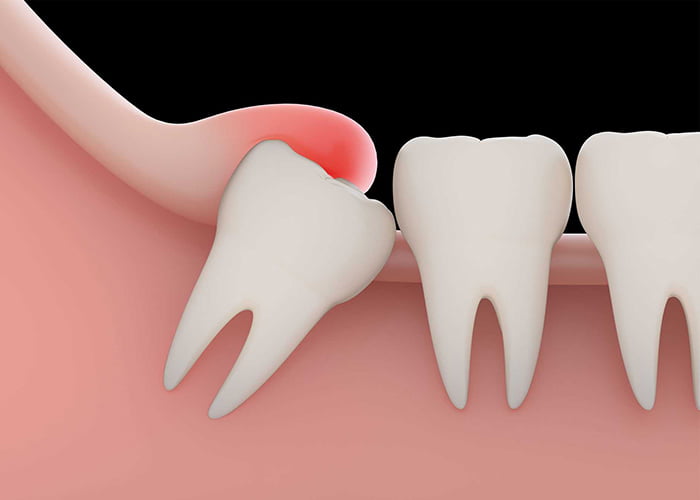The removal of wisdom teeth is a frequent dental surgery treatment. It’s frequently suggested as a preventative approach to safeguard your dental health and shield your other teeth from potential issues. Most patients recover quickly and can resume their regular activities within a few days. Here are some of our shares about wisdom tooth extraction recovery
Taking Care of Yourself After Surgery
The removal of wisdom teeth requires major surgery. Your wisdom teeth removal recovery period can be cut short by following the post-operative care recommendations provided below. Additionally, they can lessen unneeded discomfort and swelling and assist you in avoiding complications from wisdom teeth removal, like an infection. On the day of your procedure, the skilled dentists advise that you:
- Limit your activities after a wisdom tooth extraction.
- Keep your hands away from the wound.
- Do not rinse your mouth out vigorously.
- Ice your cheeks away from the operation spot.
- After your procedure, 30 minutes later, remove the gauze surgical pad.
- Take the painkillers as soon as you start to experience discomfort.
Read more: How to prepare for tooth extraction
How long does it take to recover from wisdom teeth removal?
Recovery from surgery to remove your wisdom teeth can take up to two weeks. In this period, you might have:
- Swollen lips and cheeks will initially be severe but will eventually get better; gently applying a cold towel to your face can help minimize the swelling.
- Your cheek may have some light visible bruising; the skin may remain bruised for up to 2 weeks.
- A sore, stiff jaw should go away in 7 to 10 days.
- Pain is worse if the extraction is challenging or complex.
- An offensive flavor on your tongue
- Numbness or tingling in your tongue, lips, or face (although this is uncommon)
Foods to Eat and Foods to Avoid
Learning how to choose the proper food after wisdom tooth extraction l is very important. The following are a few delicious and nutrient-rich foods to aid in your recovery from a wisdom teeth extraction.
- Apple chutney
- Icy dessert
- Soup
- Pudding or Jell-O
- potato mash
- Yogurt
- milkshakes or smoothies
- Oatmeal in a hurry
Some food groups you should stay away from until your wisdom tooth extraction site has healed because they can irritate the wound site, get trapped in the socket, or damage the soft tissue, causing bleeding and raising the risk of infection. Following wisdom tooth removal, you should avoid the following food categories:
- Foods that are acidic or spicy, like citrus or chilies
- The potential for nuts, seeds, and grains to become lodged near the extraction site
- Greasy foods
- Crackers and chips are examples of hard foods that could rip the gum tissue or cause stitches to reopen.
- Alcoholic beverages, may interfere with painkillers and prevent healing
Tips for Fast Wisdom Teeth Removal Recovery

For faster recovery after wisdom tooth extraction, we will give you some helpful tips for you:
- Bite Down Gently on a Gauze Pad: Your dentist may ask you to bite down on a gauze pad to stop the bleeding at the extraction site. You may also have to bite down on the pad for five minutes or so until the bleeding stops.
- Ice It: Methods of pain relief during wisdom tooth extraction often include icing the jaw and cheeks. This can also reduce bruising and swelling after surgery. Apply an ice pack to the side of the extraction site for 15 to 20 minutes. Then, take the ice pack off and let your face rest for 20 minutes before icing it again.
- Follow Your Dentist’s Pain Medication Prescription: Be sure to follow your dentist’s prescription for stronger painkillers. You may also have to take antibiotics to combat and prevent infections.
- Make Sure Your Mouth Stays Clean: Your dentist may allow you to brush your teeth on the same night of your surgery. You may rinse your mouth the day after the surgery. Do this at least five times a day, especially after every meal
- Stick to Soft Foods: A nutritious diet is even more important after wisdom teeth extraction. A nutritious diet reduces swelling and reduces the risk of complications. These diets also speed up the body’s wound-healing process.
- Rest as Much as You Can: Your body will heal faster by doing so. A study has also confirmed that proper sleep speeds up the body’s healing process. Injured patients who slept usually took only 4.2 days to completely heal. At the same time, those who lacked sleep took almost a day more to fully recover from their injuries.
Read more: Wisdom tooth extraction pain
When to Call Your Dentist
If you suffer any of the following warning signs or symptoms, which could point to an infection, nerve damage, or other severe problems, call your dentist or oral surgeon right away:
- Breathing or swallowing challenges
- A lot of blood
- Fever
- Severe pain that is not alleviated by pain reliever as prescribed
- Swelling that gets worse two or three days later
- A foul taste in your tongue that salt water rinsing cannot cure
- Pus in the socket or leaking from it
- Enduring numbness or a loss of sensation
- Nasal discharge with blood or pus
Conclusion
Wisdom tooth extraction is a simple surgery, but you should still take extra care to increase the recovery time after extraction. Hope the article has provided enough information for you about wisdom tooth extraction. Contact a Marysville Ohio Dentist when you need help with dental problems.



